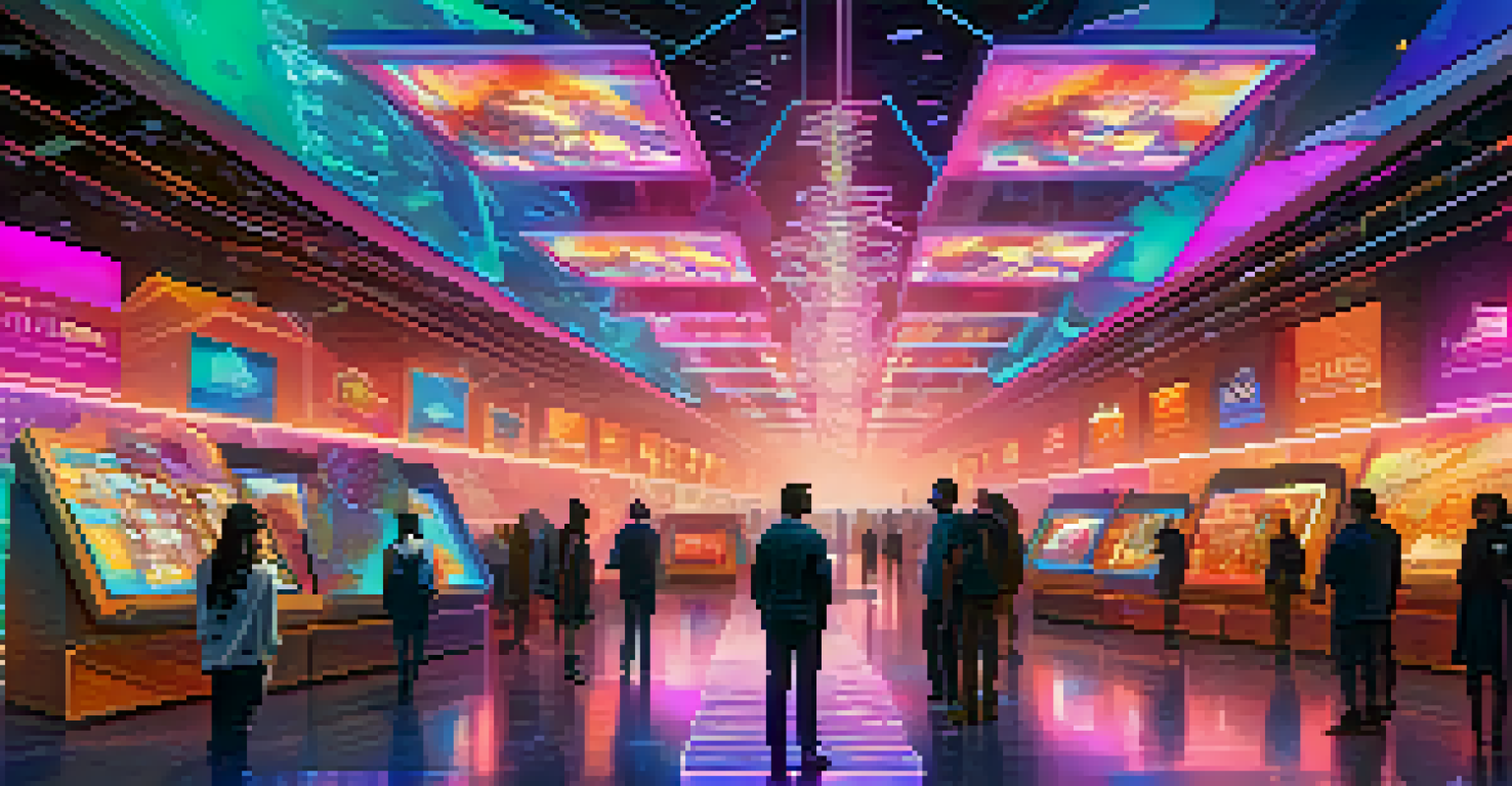The Role of Smart Contracts in NFT Transactions Explained

What Are Smart Contracts and NFTs?
Smart contracts are self-executing contracts where the terms are directly written into code. They automatically enforce and execute agreements when predefined conditions are met. Non-Fungible Tokens (NFTs) are unique digital assets verified using blockchain technology, distinguishing them from regular cryptocurrencies like Bitcoin.
Smart contracts allow us to create a new level of automation in transactions, building trust without the need for intermediaries.
In essence, smart contracts act as the backbone of NFT transactions, ensuring that ownership transfers are seamless and secure. When you buy an NFT, a smart contract verifies the ownership and executes the transfer without the need for intermediaries, like banks or brokers. This not only speeds up the process but significantly reduces the risk of fraud.
Think of smart contracts as digital vending machines: you insert your money (or cryptocurrency), select your item (the NFT), and the machine automatically delivers it to you, all without needing a cashier. This automation allows for a more efficient and trustworthy transaction process in the realm of NFTs.
How Smart Contracts Facilitate NFT Transactions
The role of smart contracts in NFT transactions is pivotal, handling everything from the creation to the transfer of NFTs. When an NFT is minted, a smart contract is deployed on the blockchain, establishing the unique attributes and ownership details of the token. This contract ensures that only the holder of the private key associated with the NFT can transfer or sell it.

Moreover, smart contracts can include royalties for creators, meaning that every time the NFT is resold, a percentage of the sale can automatically go back to the original artist. This feature not only incentivizes creators but also fosters a fairer ecosystem within the digital art and collectibles market.
Smart Contracts Enable NFT Transactions
Smart contracts automate and secure the transfer of NFTs by verifying ownership and executing transactions without intermediaries.
Imagine buying a piece of art that not only hangs on your wall but also continues to support the artist every time it changes hands. This is one of the revolutionary aspects of NFTs and smart contracts, merging technology with creativity in a way that benefits both buyers and creators.
Benefits of Using Smart Contracts for NFTs
One of the primary benefits of smart contracts in NFT transactions is transparency. Since all transactions are recorded on the blockchain, both buyers and sellers have access to a clear history of ownership and transfers. This transparency builds trust among participants in the marketplace, reducing the likelihood of disputes.
NFTs are the digital manifestation of ownership, and smart contracts are the mechanisms that enforce that ownership in a secure and transparent way.
Additionally, smart contracts eliminate the need for intermediaries, which can lead to lower fees and faster processing times. By streamlining the transaction process, buyers can acquire NFTs more quickly, while sellers can receive their funds without unnecessary delays.
Consider how traditional art sales often involve galleries or agents, adding layers of complexity and cost. With smart contracts, the process becomes much more direct, akin to buying directly from an artist at a pop-up shop, enhancing the experience for both parties.
Challenges and Limitations of Smart Contracts
Despite their advantages, smart contracts are not without challenges. One major issue is that once a smart contract is deployed on the blockchain, its terms are immutable, meaning they cannot be altered. This can lead to complications if any errors are found in the contract code after deployment.
Another limitation is the potential for security vulnerabilities. If a smart contract contains flaws or exploits, it can be susceptible to hacking, which could result in significant financial losses. Therefore, thorough auditing and testing of smart contracts are essential before they are put into use.
Transparency Builds Trust in NFTs
The use of smart contracts ensures that all NFT transactions are recorded on the blockchain, providing clear ownership histories that enhance trust among buyers and sellers.
Think of this like a software application: if there are bugs in the code, it could lead to crashes or data breaches. In the world of NFTs, ensuring the integrity and security of smart contracts is crucial for maintaining confidence in the marketplace.
Smart Contracts and NFT Marketplaces
Most NFT marketplaces utilize smart contracts to facilitate transactions between buyers and sellers. Platforms like OpenSea and Rarible rely on these contracts to manage the sale process, ensuring that funds are securely transferred and ownership is accurately recorded. This reliance on smart contracts is what allows these platforms to operate efficiently.
Additionally, the use of smart contracts enables features like auctioning and bidding, giving buyers more flexibility in how they acquire NFTs. Sellers can set reserve prices and buyers can place bids, all managed through the automated execution of smart contracts.
Imagine participating in a live auction where bids are automatically processed in real time without human intervention. This not only enhances the excitement but also ensures fairness and accuracy, illustrating how smart contracts revolutionize traditional auction methods in the digital realm.
The Future of Smart Contracts in NFTs
As the NFT space continues to evolve, the role of smart contracts is expected to expand further. Innovations in blockchain technology and the development of more sophisticated smart contracts could lead to enhanced features, such as dynamic pricing models or more complex royalty structures for creators.
Moreover, the integration of smart contracts with emerging technologies like artificial intelligence (AI) could revolutionize how NFTs are created and sold. For instance, AI could analyze market trends and automatically adjust prices in real time, optimizing sales for artists and collectors alike.
Future Innovations in Smart Contracts
As technology evolves, smart contracts are expected to incorporate advanced features like dynamic pricing and AI integration, transforming the NFT market.
Picture a world where your NFT art adjusts its price based on demand, much like how stocks fluctuate in the market. This futuristic approach could not only enhance profitability for creators but also create a more engaging experience for collectors, making the NFT landscape even more dynamic.
Conclusion: Embracing Smart Contracts in the NFT Ecosystem
In conclusion, smart contracts play a vital role in the functioning of NFT transactions, providing security, transparency, and efficiency. As the NFT market grows, understanding how these contracts work will become increasingly important for both buyers and sellers. Their ability to automate and streamline the entire process makes them indispensable in this digital landscape.
Moreover, the potential for innovation in smart contracts promises exciting developments ahead. Whether it’s through enhanced features or integrating new technologies, the future looks bright for NFTs and the smart contracts that support them.

So, as you venture into the world of NFTs, keep an eye on smart contracts. They're not just a technical aspect; they're the key that unlocks a whole new realm of possibilities in the digital art and collectibles market.